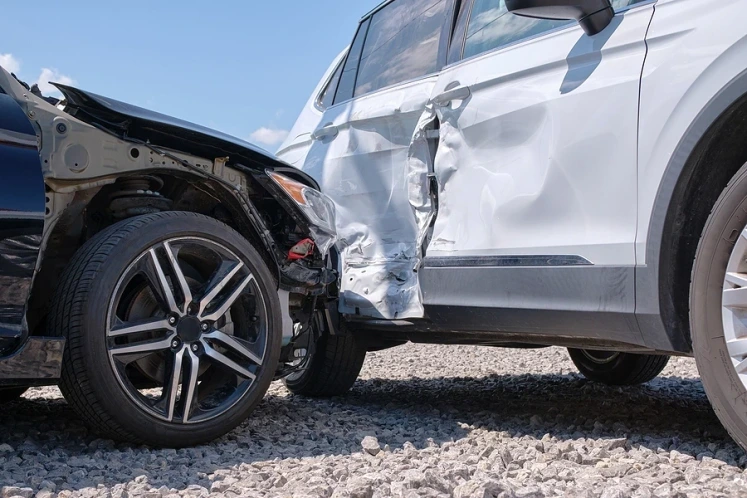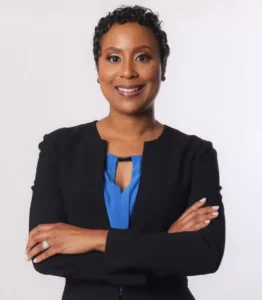Table of Contents
Accidents can leave lasting physical, emotional, and financial impacts. In personal injury cases, proving the full extent of damages and liability can be complicated. That’s where expert witnesses play a critical role. Their knowledge, experience, and professional opinions can help clarify complex issues, support claims, and ensure that victims receive the compensation they deserve. Understanding how expert witnesses work and why they matter can provide clarity for anyone pursuing a personal injury case in Jackson.
Who Expert Witnesses Are
Expert witnesses are professionals with specialized knowledge or experience in a particular field. Unlike ordinary witnesses, they are allowed to give opinions based on their expertise. Their testimony can help judges, juries, and insurance companies understand technical aspects of an accident, injuries, or damages that may not be obvious to someone without specialized training.
Common types of expert witnesses in personal injury cases include:
-
Medical professionals such as doctors, surgeons, and physical therapists, who can explain the nature and severity of injuries.
-
Accident reconstruction specialists, who analyze the circumstances of a crash or incident to determine how it occurred.
-
Engineers, who assess structural failures, product defects, or mechanical malfunctions.
-
Vocational experts, who evaluate the impact of an injury on a person’s ability to work and earn income.
-
Economic and financial experts, who calculate current and future costs related to medical treatment, lost wages, and other damages.
Each expert brings credibility and clarity to complex issues that may otherwise be confusing in court.
How Expert Witnesses Support Liability Claims
In many personal injury cases, determining who is at fault is not straightforward. Accident reconstruction experts, for example, examine factors like vehicle speed, point of impact, skid marks, and road conditions to determine how an accident happened. Their analysis can help establish whether a driver acted negligently or whether external factors contributed to the incident.
Similarly, engineers or product experts may be called upon if an injury involves a defective product, faulty machinery, or unsafe conditions. They provide technical evidence to show that a defect or failure contributed to the accident. This type of testimony can strengthen a case by linking the incident directly to negligence or wrongdoing.
Medical Experts and Injury Evaluation
Medical expert testimony is often central to personal injury cases. Doctors and specialists review medical records, examine the injured party, and provide opinions about the cause and extent of injuries. They may also discuss prognosis, required treatments, and potential long-term effects.
This type of testimony helps insurance companies and juries understand the physical impact of the accident. For example, a spine specialist can explain the severity of a back injury and why it may require ongoing therapy, while an orthopedic surgeon can clarify why surgery was necessary for a broken bone. The credibility of medical experts can make a significant difference in the outcome of a case.
Calculating Damages with Expert Help
Determining damages in personal injury cases often involves more than medical bills. Economic and vocational experts can provide detailed analysis of financial losses. They calculate past and future medical expenses, lost wages, lost earning potential, and other economic impacts.
By presenting these calculations clearly and professionally, expert witnesses help ensure that victims receive fair compensation. Their reports also give insurance companies and courts an objective assessment of financial needs, reducing disputes over the value of a claim.
Expert Witnesses and Courtroom Credibility
The credibility of an expert witness is critical. They must have recognized qualifications, relevant experience, and a reputation for accuracy and objectivity. Courts and juries are more likely to rely on testimony that is well-supported by data, professional experience, and peer-reviewed research.
Experts also help simplify complex information. For instance, technical details about vehicle mechanics, medical conditions, or structural failures can be confusing to jurors. Expert witnesses translate these details into understandable terms without sacrificing accuracy. Their ability to explain complicated concepts clearly can influence how a case is perceived.
Preparing for Expert Testimony
Before a trial, expert witnesses work closely with attorneys to review the case, analyze evidence, and prepare reports. While their opinions are guided by facts and professional knowledge, their preparation ensures that testimony is thorough, clear, and defensible under cross-examination.
Preparation may include reviewing accident reports, medical records, photographs, or other documentation. Experts may also conduct examinations, simulations, or calculations to support their conclusions. Their findings are typically documented in a report that can be used in negotiations or in court.
Expert Witnesses in Settlement Negotiations
Expert testimony is not limited to the courtroom. In many cases, their reports and opinions can influence settlement negotiations. Insurance companies may be more willing to offer fair compensation when presented with credible evidence from qualified professionals. This can save time, reduce legal costs, and lead to faster resolution for the injured party.
Challenges with Expert Witnesses
While expert witnesses are valuable, there can be challenges. Opposing counsel may attempt to discredit an expert by questioning their qualifications, methods, or bias. This is why selecting highly qualified and experienced professionals is essential. Attorneys often vet experts thoroughly to ensure they are credible, reliable, and capable of withstanding scrutiny in court.
Another challenge is the cost. Expert witnesses can be expensive, and their fees may vary depending on experience, specialization, and the complexity of the case. However, the potential benefits—stronger evidence, higher settlements, and clearer understanding of the case—often outweigh these costs.
Choosing the Right Expert Witness
Selecting the right expert requires careful consideration. Key factors include:
-
Professional credentials and certifications
-
Relevant experience in similar cases
-
Ability to communicate clearly and effectively
-
Reputation for objectivity and credibility
Your attorney can guide you in choosing experts who will strengthen your case and provide persuasive testimony. Their role is to support your claim and provide clarity, not to advocate emotionally or exaggerate facts.
Conclusion
Expert witnesses play a vital role in personal injury cases in Jackson. They provide knowledge and insights that help establish liability, explain injuries, and calculate damages. Their testimony can make complex issues understandable, strengthen claims, and support fair compensation for victims.
If you or a loved one has been injured in an accident, working with a personal injury attorney who understands how to effectively use expert witnesses can be crucial. From medical specialists to accident reconstructionists and financial experts, the right professionals can ensure that your case is supported by credible, objective, and persuasive evidence. Taking the time to understand and utilize expert testimony can make a significant difference in both settlement negotiations and trial outcomes.

